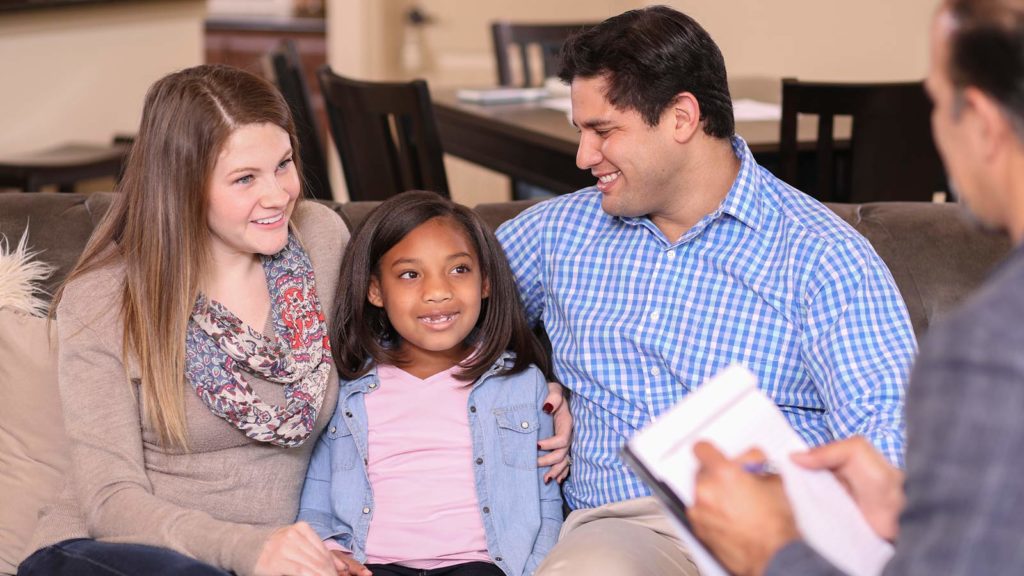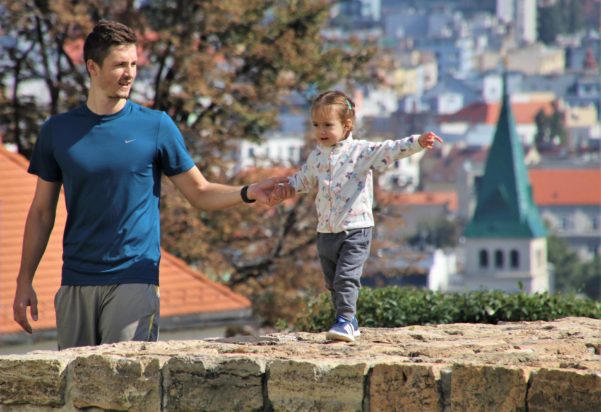Less than a year ago, we launched Holt’s Post-Adoption Coaching & Education (PACE) program. In that time, it has become clear to us that parents really are looking for support and help managing their children’s behaviors!
Dealing with negative behaviors is tough and can make everyday life a challenge for the whole family. And oftentimes, when a child is having behavioral issues, it can seem insurmountable, frustrating, confusing and disheartening. But when you face behavior challenges with your child, remember these two key things:
- You are not alone! You are not the first and you will not be the last parent to have a child with challenging behaviors.
- Behaviors can be addressed and won’t last forever. Behaviors serve a purpose for a child, which means that when you address the underlying issue, you can also curb the behavior.
Let’s break these ideas down further.
You are not alone.
Behavior issues are common. Not because of bad parenting, a child’s choosing to give you a hard time, or any of the list of reasons you probably run through your brain every time you have a parenting challenge. Parenting is just hard. And adoptive parenting is hard and has added complexities.
If you have not parented a child from birth — or even if you have but it’s been a few years — it can be easy to overlook or forget that you are building a bond in those early years, and that you will gain more information about your child as they grow. Both of these things feed into addressing and managing behaviors. With your adoptive child, you’re working to build a bond as soon as they’re in your arms, but you’ve got a lot of ground to cover. It’s not fair to yourself or your child to compare the behavior issues of your 4-year-old who has been home with you for six months to the behavior issues of your friend’s 4-year-old who has always lived with her family. What works for your friend very well may never work for you and your child, and that is perfectly okay.
Here are a few basic strategies for dealing with challenging behaviors:
- Take a breath, take a break — both you and your child need to decompress.
- Don’t play the comparison game with other parents — no one will ever win.
- It’s okay not to share all your struggles or challenges with those in your life who don’t understand the complexities of adoptive parenting. Sometimes too much advice is just that… Too much!
- Remember to connect! You’re making up for time and bonding you didn’t have in your child’s early years. We’d love for them to follow every rule, but they also need to have fun and so do you! Don’t lose sight of bonding and connection in the name of discipline.
Behaviors can be addressed and won’t last forever.
Behavioral issues with an adopted child can be confusing and misleading! One of the major things to remember, however, is that behavior has a function. It helps to remember that children communicate through their behavior; a child who is acting out in a certain way is often seeking to meet a need. The fun/confusing/maddening part of this idea is that the behavior does not always clearly link to the function.
Let’s consider an example:
A family’s adopted son has been home for over a year and things seemed to be going well. But then, all of a sudden, he starts to fight about every single routine or every small request. Sound familiar? For parents, this feels like their child is being defiant, doesn’t respect them and hates their family routine. They’re frustrated, he’s frustrated and their evenings are stressful.
For this child, coming to his new home was a lot to adapt to. He had to learn a new language, adapt to an entirely new environment, get used to being a minority in his community, start to bond with his parents. Once he began to feel safe, stable and consistent in his new life, he really started to process the changes he had experienced. He had feelings of sadness about his old life (his friends, his favorite food, his foster mother). These feelings were confusing because he also loved his mom and dad and was very often happy playing with his new brother, his dog and his friends at preschool. Since he didn’t have words for these feelings or a way to talk about them, he really started to look for things he could have some control over. Enter the family night time routine: He could say no. He could have power. He didn’t always feel good about fighting with his family, but he felt good to be in control. For a few minutes when he had control, he didn’t have all those feelings of happiness and sadness mixed up in his brain. He had some relief.
There is never a quick fix to addressing behaviors, but there’s always a path forward.
For a child who is exerting control, a great option is to give them some control. They don’t want to put on their PJs and then brush their teeth? Let them pick the order of the night! They seem to be doing fine and then have a total meltdown about having to put a toy away and get ready for bed? Give them plenty of lead-up warnings about the schedule change. “In 30 minutes we’re going to put our toy down and go wash our hands for dinner.” …. “In 15 minutes we’re going to put our toy down and go wash our hands for dinner.” … “In 10 minutes…” … “In 5 minutes…” Giving a child control addresses some of the function of their misbehavior. They need control, so we find ways to give them that control while still accomplishing what we need to do as parents.
Strategies for addressing the function of behavior:
- Take a step back and consider what need the child may be trying to meet. Look at what is happening just before and just after the behavior.
- Don’t discount their feelings around adoption/loss/grief – even if they’ve been home for a while or had long periods of being OK.
- Talk about feelings often, and model your own feelings of sadness, happiness, fear, etc… When we give children the words to express their feelings, they have ways to communicate them instead of acting them out.
- Talk about adoption with your child (even if they are very young). They need a language to use to express their experiences.
There is never a quick fix to addressing behaviors, but there’s always a path forward. When you use these basic strategies to address the challenging behaviors you’re facing, it will help keep you grounded while keeping the end goal of connection at the forefront of your interactions with your child.

Receive Post Adoption Coaching & Education
All parents encounter challenges as their children grow up. And sometimes, issues may arise that leave you uncertain as to how best to respond. But not every issue requires therapy or counseling. The PACE program is here to help during those times.
Samantha Sutherland | Northern California Social Worker & PACE Coach


